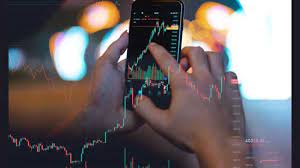
Your Forex Portfolio’s Best Friend: Selecting the Right Broker
Forex, or foreign exchange, trading is the act of buying and selling currencies. It is a global market, with trading occurring 24 hours a day, five days a week. To participate in Forex trading, you need the services of a Forex broker. As with any financial services industry, there are countless Forex Broker IFX out there, making it difficult to know which one to choose. In this blog post, we’ll take a fresh look at brokerage services to help you navigate the Forex landscape.
Regulation
Investors cannot afford to put their trust in brokers who are not regulated by reputable authorities. Good brokers are typically regulated by governing bodies such as the Commodity Futures Trading Commission (CFTC) or the National Futures Association (NFA) in the United States or the Financial Conduct Authority (FCA) in the UK. Regulation not only ensures the safety of funds but also helps to prevent fraud.
Trading Platform
A trading platform is a web-based software package that enables traders to access Forex markets and executes trades on their behalf. It is important to choose a broker who provides a platform that is user friendly and well-designed. The platform should have a customizable interface, advanced charting tools, and ideally enable the use of automated trading strategies.
Market Access and Execution
Forex trading is conducted through an electronic network of banks, brokers, and institutional traders. The best Forex brokers should provide their clients with the best possible market access and execution. Look for brokers who offer a range of markets, such as currency pairs, commodities, and indices, and who have an execution system that offers low latency and minimal slippage.
Trading Costs
Trading costs can add up over time. These costs may include spreads, commissions, and swap rates. Different brokers have different models, and the costs associated with each trade can vary significantly. A good Forex broker should be transparent about their fees, with no hidden costs. Pay attention to the difference between fixed spreads and variable spreads and assess which pricing model suits your trading style.
Customer Support
Finally, it is essential to choose a Forex broker who is responsive and easy to contact when there is a problem. A good broker should offer multiple ways to get in touch, such as phone, email, or live chat, and they should have a team of experienced professionals who can help resolve any issues that may come up.
Conclusion:
Navigating the Forex landscape can seem like a daunting task, but with the right broker, you can have a gratifying and profitable trading experience. Ultimately, choosing a Forex broker comes down to who you feel can provide you with the best service and the most efficient trading conditions. Look for brokers who are transparent, easily accessible, and offer the right mix of features to suit your particular needs. With the right broker by your side, you’ll be well on your way to becoming a successful Forex trader.